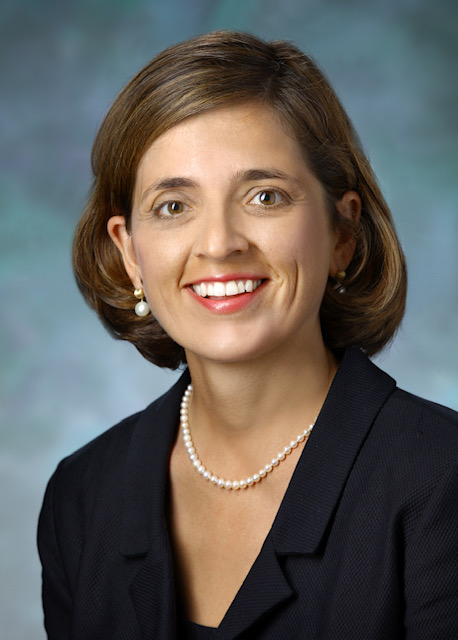
Endocrine News talks with Kelly Gebo, MD, MPH, the chief medical and scientific officer of the NIH’s All of Us program, who explains why “one size does not fit all” when it comes to healthcare delivery and how this ambitious research program could be useful for both endocrine clinicians and scientists alike.
A new research program called All of Us was launched by the National Institutes of Health to extend precision medicine to all diseases by creating a national research cohort of over a million U.S. participants.
Originally called the Precision Medicine Initiative (PMI), the program was renamed All of Us in 2016 and aims to be the largest health and medical research program on precision medicine. Kelly Gebo, MD, MPH, is the chief medical and scientific officer of the All of Us Research Program. She spoke to Endocrine News about the program, why it’s so important, and how endocrinologists can be a part of it.
Endocrine News: Can you tell us a little bit about the scope and goals of the All of Us Research Program?
Kelly Gebo: The All of Us Research Program has a simple mission – to accelerate health research and medical breakthroughs. To reach this goal, we are enrolling 1 million or more participants who are willing to share their health information through surveys and electronic health records. Participants also may be asked to visit a local partner site to share physical measurements and blood and urine samples. Over time, there will be additional opportunities for participants to contribute data through digital health technologies and ancillary studies.
Because healthcare has often been delivered in a “one size fits all” model, All of Us is working to build a participant community that lives up to its name by reflecting the diversity of America.
Because healthcare has often been delivered in a “one size fits all” model, All of Us is working to build a participant community that lives up to its name by reflecting the diversity of America. We have a special focus on including communities that have been historically underrepresented in research. That includes racial and ethnic minorities, as well as sexual and gender minorities, rural residents, seniors, people with low income or low educational attainment, people with disabilities, and people with limited access to healthcare.
EN: Why is it important for patients with endocrine diseases to participate in this program?
KG: As we know, research is advancing our understanding of endocrine diseases and this leads to more accurate, precise, and appropriate interventions and diagnoses. The more we learn about risk factors, preventive factors, disparities, and genetic profiles, the better care all of us, including those with endocrine diseases, will receive. This program intends to catalyze that kind of research, and we hope people with endocrine diseases—and their friends and family—participate.
Also, it is important for all adults to feel welcome to participate in All of Us. The health information they contribute may provide insights into the differences in our physiology, risk of disease, and response to treatments — for endocrine diseases and other conditions as well. By joining, participants will contribute to research that may improve health for everyone.
EN: Have you had success enrolling patients from minority groups that are typically underrepresented in research studies?
KG: The excitement around this program is growing. More than 140,000 people have registered with the program as the first step in the participant journey, and more than 80,000 have completed all of the steps of the core protocol. Amazingly, nearly half of those are from racial and ethnic minority groups, and more than 75% are from communities that have been historically underrepresented in biomedical research.
Researchers may use the data to develop new disease classifications and relationships, identify the causes of individual differences in response to commonly used drugs, discover biological markers that signal increased or decreased risk of developing common diseases, or identify health disparities.
We recognize that engagement and education go a long way toward breaking down the barriers that have previously kept some communities from research participation. To that end, we are working closely with leaders from communities that are historically underrepresented in biomedical research to find ways that we can partner to encourage communities to join.
EN: Can you explain some of the opportunities for researchers that you anticipate will result from data generated with the cohort?
KG: In the future, approved researchers — including citizen scientists — will use this data to conduct many kinds of studies with the hopes of better preventing, diagnosing, and treating diseases. For example, researchers may use the data to develop new disease classifications and relationships, identify the causes of individual differences in response to commonly used drugs, discover biological markers that signal increased or decreased risk of developing common diseases, or identify health disparities. We look forward to seeing what questions researchers bring to the All of Us resource.
EN: How can Endocrine Society members learn more or participate in the program?
KG: We invite Endocrine Society members to enroll in the program and help spread the word to family, friends, and their patients. Anyone who is interested in learning more can go to www.joinallofus.org or follow us on Twitter @AllofUsResearch.

